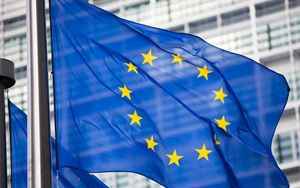(Finance) – The six-month rotating presidency of the EU Council summoned a new extraordinary meeting of energy ministers for 30 September in Brusselss, to discuss proposed measures against the volatility of gas and electricity prices that the European Commission will approve today and formally present tomorrow in Strasbourg.
In these hours, the EU executive is working to perfect the package of proposals against expensive energy that the president Ursula von der Leyen he will explain tomorrow in the State of the Union address that he will see Olena Zelenska, the first lady of Ukraineas a guest of honor. Three axes on which Brussels is preparing to legislate: the mandatory cut in electricity consumption, the solidarity contribution to be requested from oil & gas companies, the ceiling on the revenues of companies that produce electricity from low-cost sources other than gas. A ceiling that the text sets at 180 euros per megawatt hour. The consumption cut will be quantified at around 10% on a monthly basis (and by comparing it with the average consumption over the last 5 years in the same month). The reduction in peak hours will be set at 5%. It will be up to the countries to quantify and identify in which bands to implement the cut, with the Commission recommending an average of 3-4 hours for each working day in the text.
“Tomorrow we will set a mandatory target to reduce electricity consumption during peak hours but – said the European Commissioner for Energy, Kadri Simson, speaking at the plenary of the EU Parliament in Strasbourg – we will give member states the flexibility to design their own measures as they see fit. This – explained the commissioner – will reduce the stress on electricity production, reduce gas consumption and have a positive effect on prices “.
The injection of liquidity for companies operating on the energy market on the other hand, it has slipped because it must be coordinated with the European scheme on state aid. In the package, the great absentee remains the price cap: that of Russian gas could be exceeded, that of total methane imports does not in fact have the necessary consensus. On the table remains the hypothesis of negotiate the price of gas with individual suppliers, making a difference between those considered reliable and those less. The dossier will end up on the table of a new extraordinary Council of Energy Ministers convened for next September 30th.
(Photo: © andreykuzmin / 123RF)
